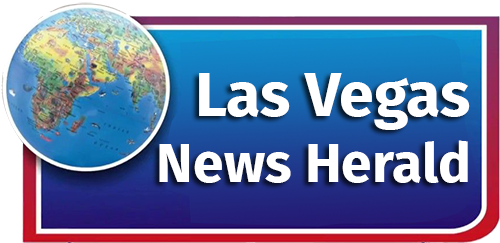Media Literacy Navigating Politics in the Information Age
In today's digital era, where information is readily available at our fingertips, media literacy has become an essential skill. With the constant flow of news and the proliferation of social media platforms, it can be challenging to discern reliable information from misleading or biased content, especially when it comes to politics. In this article, we will explore the concept of media literacy and provide valuable insights on how to navigate politics in the information age.
The Importance of Media Literacy
In the information age, media literacy is crucial for individuals to make informed decisions, especially in the realm of politics. Media literacy refers to the ability to access, analyze, evaluate, and create media content. It involves understanding the various forms of media, their biases, and their impact on society. By developing media literacy skills, individuals can navigate through the vast sea of information and separate fact from fiction.
Understanding Media Bias and Manipulation
Media bias is an inherent characteristic of media outlets, influenced by their owners, sponsors, or personal beliefs of journalists. It is essential to recognize and understand these biases to interpret news critically. Moreover, media manipulation techniques, such as selective reporting and framing, can shape public opinion. Being aware of these tactics helps individuals develop a discerning eye and make well-informed judgments.
Fact-Checking: Verifying the Accuracy of Information
Fact-checking is a vital component of media literacy. With the rise of misinformation and "fake news," it is crucial to verify the accuracy of information before accepting it as true. Fact-checking involves cross-referencing multiple sources, consulting reputable fact-checking organizations, and critically evaluating the evidence provided.
Analyzing Sources: Assessing Credibility and Bias
To navigate politics effectively, it is essential to analyze the credibility and bias of information sources. Reliable sources are based on evidence, supported by experts, and have a transparent methodology. By critically evaluating sources, individuals can avoid falling into the trap of misinformation and propaganda.
Recognizing Propaganda Techniques
Propaganda techniques are used to manipulate public opinion and promote a specific agenda. Recognizing these techniques, such as emotional appeal, loaded language, and cherry-picking evidence, is crucial for media literacy. By understanding these strategies, individuals can identify when they are being manipulated and make more informed decisions.
Social Media and Politics: Challenges and Opportunities
Social media platforms have revolutionized the way information is disseminated and consumed. However, they also present challenges regarding the spread of misinformation and echo chambers. To navigate politics in the information age, individuals must critically assess the information they encounter on social media, engage in civil discourse, and be aware of the potential biases within their online networks.
Critical Thinking: Developing a Skeptical Mindset
Critical thinking is a fundamental skill for media literacy. It involves questioning assumptions, evaluating evidence, and considering alternative perspectives. By developing a skeptical mindset, individuals can analyze political information critically, identify logical fallacies, and make well-rounded judgments.
Media Literacy Education: Empowering the Next Generation
Media literacy education plays a crucial role in equipping individuals, particularly young people, with the necessary skills to navigate politics in the information age. Integrating media literacy into school curricula helps students develop critical thinking skills, ethical media consumption habits, and the ability to engage in informed political discussions.
The Role of Journalists and Responsible Reporting
Journalists play a vital role in society by providing accurate and unbiased information. Responsible reporting involves thorough research, fact-checking, and presenting multiple perspectives. By supporting reputable journalists and news outlets, individuals can rely on trustworthy sources of information for their political understanding.
Engaging in Constructive Political Discourse
Navigating politics requires engaging in constructive discourse. This involves actively listening to diverse perspectives, respecting differing opinions, and seeking common ground. By promoting open and respectful dialogue, individuals can bridge political divides and work towards collective solutions.
Overcoming Filter Bubbles and Echo Chambers
Filter bubbles and echo chambers are phenomena in which individuals are only exposed to information that aligns with their pre-existing beliefs. To overcome these limitations, individuals must actively seek out diverse viewpoints, engage with people from different backgrounds, and be open to challenging their own perspectives.
Ethical Considerations in Media Consumption
Ethical media consumption involves being mindful of the potential consequences of sharing or promoting misleading information. It is essential to consider the impact of our actions on others and strive to be responsible digital citizens. By practicing ethical media consumption, individuals contribute to a healthier and more informed online environment.
Media Literacy for Active Citizenship
Media literacy is closely intertwined with active citizenship. Informed citizens are better equipped to participate in the democratic process, hold elected officials accountable, and make decisions that align with their values. By developing media literacy skills, individuals can actively contribute to shaping a more just and democratic society.
The Future of Media Literacy
As technology continues to advance, media literacy will play an even more significant role in our lives. With emerging technologies like artificial intelligence and deepfakes, individuals will need to be more discerning than ever. Continued education, collaboration between stakeholders, and innovative approaches to media literacy will be essential for navigating the future of politics in the information age.In the digital age, media literacy is crucial for navigating politics effectively. By understanding media bias, fact-checking information, analyzing sources, and engaging in critical thinking, individuals can separate truth from falsehood. Media literacy empowers citizens to make informed decisions, participate actively in political discourse, and contribute to a healthier democracy.






 English (US) ·
English (US) ·